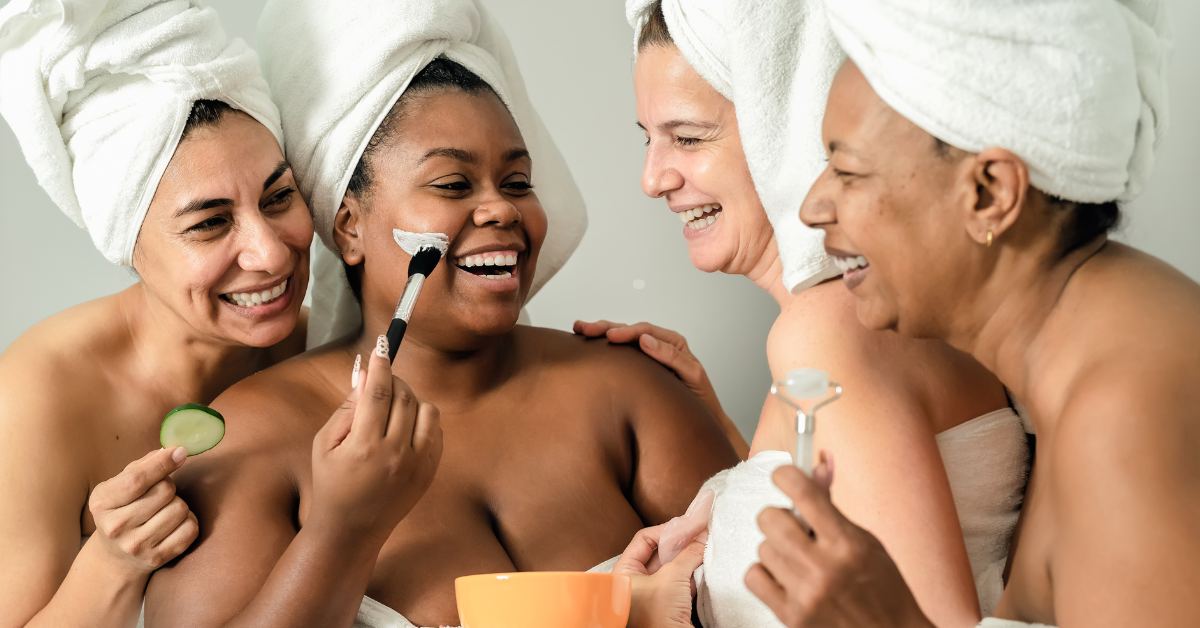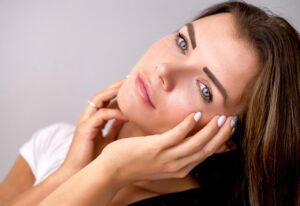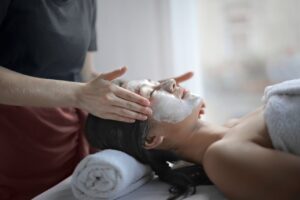Achieving clear skin without products is a universal desire, yet the journey to this goal is often cluttered with an overwhelming array of skincare products, each promising miraculous results. It’s important to realize that the foundation of healthy, clear skin can be laid without the aid of costly products or complicated routines. Exploring how to get clear skin naturally at home without products not only offers an economical approach but also minimizes the risk of adverse reactions that can accompany the use of commercial skincare items. Embracing a skincare routine that relies solely on natural methods and lifestyle changes can pave the way to achieving and maintaining the complexion you desire.
This article guides readers through ten practical home remedies for clear skin, emphasizing the power of adopting natural and simple practices. Key focus areas include regular maintenance such as changing pillowcases, ensuring adequate sleep, and protecting the skin from environmental stressors. Moreover, it delves into how to cleanse and care for the skin without products, highlighting the significance of a healthy lifestyle that supports skin health from the inside out. Each suggested remedy and practice is designed to contribute to a comprehensive skincare regimen that aligns with the pursuit of clear skin naturally, underscoring the importance of consistency and dedication to see tangible results.
Table of Contents
Change Pillowcases Regularly
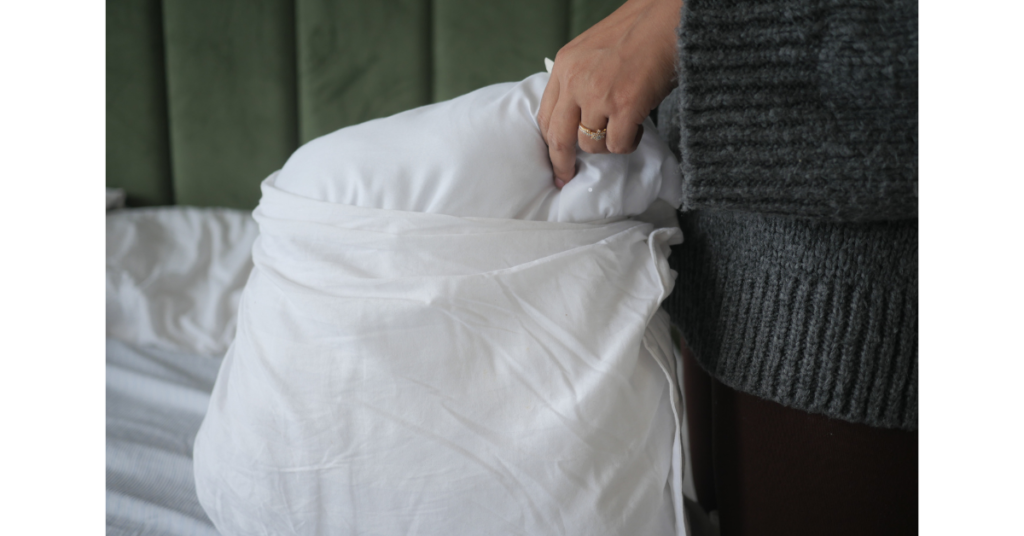
Benefits of Changing Pillowcases for Skin Health
Changing your pillowcases regularly can significantly enhance skin health by reducing the transfer of oil, dirt, and bacteria from the fabric to your face during sleep. This practice helps prevent clogged pores, acne, and other skin irritations, thereby promoting clearer, healthier skin 7.
Recommended Materials for Pillowcases
When selecting pillowcases, opting for natural fibers like cotton or silk is advisable. These materials are breathable and less likely to trap heat and moisture, factors that can exacerbate skin problems. Silk pillowcases, for instance, are gentle on the skin and can reduce friction, which may lead to fewer wrinkles and help maintain skin’s natural moisture. On the other hand, synthetic materials such as polyester, while often more affordable, may not offer the same benefits and could potentially contribute to bacterial buildup 7 9.
How Often to Change Them
Experts generally recommend changing pillowcases at least once a week to maintain skin health, particularly for those with oily skin or prone to acne. Regular washing in hot water is also crucial as it helps eliminate accumulated oils, dirt, and bacteria. For individuals using acne treatments or those with sensitive skin, increasing the frequency of changes to two or three times a week can provide additional benefits by minimizing exposure to irritants and enhancing the effectiveness of skincare products 7 10 12.
Maintain Good Sleep Habits
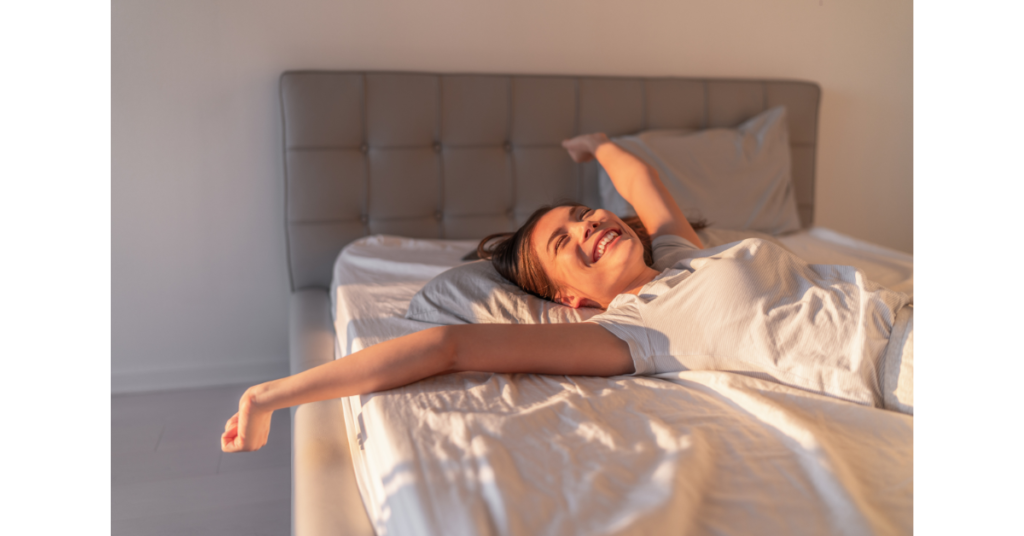
The Importance of Beauty Sleep for Skin Health
Sleep is essential not only for overall well-being but also for maintaining healthy skin. During sleep, the body undergoes restorative processes that are crucial for skin repair and regeneration. Increased collagen production during sleep helps maintain the skin’s elasticity and youthful appearance. Conversely, inadequate sleep can lead to a breakdown in collagen production, resulting in accelerated skin aging and a compromised ability to recover from environmental damage such as UV exposure 1821.
Tips for Improving Sleep Quality
To enhance skin health through better sleep, it is important to establish a consistent sleep schedule and create a soothing bedtime routine. Keeping the bedroom environment conducive to sleep by ensuring it is cool, dark, and quiet can also improve sleep quality. Limiting exposure to blue light from electronic devices before bedtime is crucial as it can disrupt sleep patterns. Additionally, incorporating relaxation techniques such as deep breathing or meditation can aid in achieving a restful night’s sleep 1821.
Connection Between Sleep and Skin Renewal
The relationship between sleep and skin health is well-documented, with studies showing that quality sleep contributes to various skin benefits. These include improved skin barrier function, reduced inflammation, and enhanced repair of damage caused by environmental stressors. Sleep deprivation not only affects the appearance of the skin, leading to dullness and increased signs of aging, but also exacerbates skin conditions such as acne, psoriasis, and eczema due to increased stress and inflammation 1821.
By prioritizing good sleep habits, individuals can support their skin’s natural renewal processes, leading to healthier and more resilient skin 1821.
Cleanse and Care for Skin Without Products
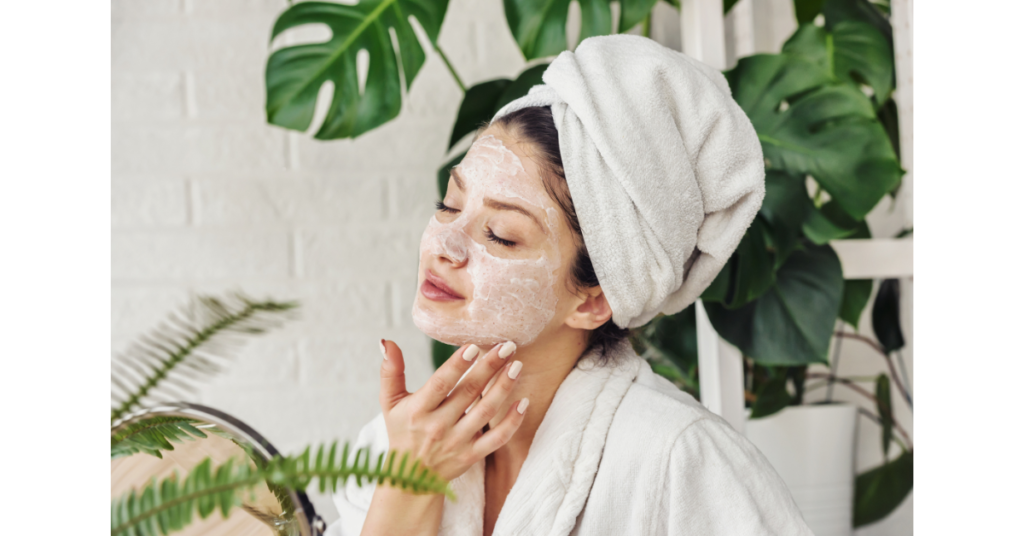
Alternatives to Traditional Skin Cleansing Methods
Washing the face with lukewarm water is recommended by skin care experts as it does not strip the skin of essential oils while effectively removing impurities 2829. For those with sensitive or acne-prone skin, Sophia Knapp, a licensed cosmetologist, suggests using cold water after a lukewarm wash to tighten pores and promote blood circulation, which can enhance skin glow and reduce pore visibility 28. Anne Beal, MD, emphasizes that lukewarm water is the perfect middle ground for all skin types, aiding in better absorption of skin care products without harming the skin’s protective barrier 28.
Natural Ingredients for Skin Care
DIY skincare remedies offer a personalized approach to skin health, allowing individuals to select natural ingredients that cater specifically to their skin needs 26. For instance, a simple homemade mask can be made using chickpea flour, turmeric, and milk or aloe vera, which helps in exfoliating the skin gently while providing nourishment 26. Additionally, essential oils such as tea tree and peppermint are known for their antimicrobial properties and can be effective in treating acne and reducing skin inflammation 25.
Balancing Skin’s Natural Oils with Temperature of Water Used
The temperature of water used during facial cleansing plays a critical role in managing skin’s natural oil balance. Cold water can prevent the overproduction of oils by tightening pores, which is beneficial for oily and acne-prone skin 28. However, it is less effective in removing dirt and oil compared to warm water. Dr. Beal recommends using warm water to cleanse the face initially to remove makeup and pollutants effectively, followed by a cold rinse to close pores and reduce puffiness 28. This method ensures thorough cleansing while maintaining the natural oil balance of the skin.
Protect Your Skin from Environmental Stress

Effects of Blue Light on Skin Health
Exposure to blue light from electronic devices such as smartphones, tablets, and computer screens can have adverse effects on skin health. Research indicates that blue light can lead to changes in skin cells, including cell shrinkage and death, which accelerates the aging process. Even short exposures, as brief as 60 minutes, can initiate these changes 31. Additionally, blue light exposure has been linked to increased pigmentation, swelling, and redness, particularly in individuals with darker skin tones 31. However, blue light also possesses therapeutic properties, such as treating mild to moderate acne and reducing precancerous patches of actinic keratosis with minimal side effects 31.
Importance of Sun Protection
Protecting the skin from ultraviolet (UV) light is critical to prevent skin damage and reduce the risk of skin cancer. Sunscreen is a fundamental tool for sun protection, but it is also essential to wear protective clothing and seek shade. Clothing that covers the skin, such as long-sleeved shirts, wide-brimmed hats, and long pants, can significantly reduce UV exposure. Fabrics with a tighter weave and darker colors offer better UV protection compared to lighter colors and looser weaves 3435. Additionally, sunglasses play a crucial role in protecting the eyes and the sensitive skin around them from UV damage, potentially preventing conditions like cataracts 34.
Using Physical Barriers Like Hats and Sunglasses
Using physical barriers such as hats and sunglasses is an effective strategy to shield the skin and eyes from harmful UV rays. A wide-brimmed hat can cover the face, ears, neck, and head, providing substantial protection against UV exposure. It is important to choose hats with a wide brim to ensure adequate coverage 35. Sunglasses with UV protection are essential not only on sunny days but also on overcast days, as UV light can penetrate clouds and reflect off surfaces like water and sand, increasing exposure 38. Polarized lenses in sunglasses can reduce glare, making it easier to see in bright conditions while protecting the eyes from UV rays 38.
By adopting these protective measures, individuals can effectively minimize the risk of skin damage and promote long-term skin health 31343538.
Adopt a Healthy Lifestyle
Balanced Diet and Its Impact on Skin
A healthy diet is instrumental in achieving optimal skin health, as it provides essential nutrients that support skin function, repair damaged cells, and combat inflammation 40. Consuming a variety of fruits, vegetables, lean proteins, and essential fatty acids ensures a rich supply of vitamins, minerals, and antioxidants crucial for maintaining a vibrant, youthful complexion 4042. Conversely, diets high in processed foods, sugars, and unhealthy fats can exacerbate skin conditions like acne, eczema, and premature aging 4042. Dermatologists emphasize that a balanced diet not only aids in managing chronic skin conditions but also plays a pivotal role in achieving dermatological wellness 40.
Limiting Alcohol and Avoiding Smoking for Better Skin
The negative effects of smoking and excessive alcohol consumption on skin health are significant and well-documented. Smoking leads to cutaneous microvascular constriction and reduces collagen and elastin synthesis, contributing to premature aging 4344. Alcohol consumption, on the other hand, impairs the skin’s antioxidant defense system and can lead to dehydration and increased skin redness 4344. Reducing or eliminating these habits can greatly enhance skin quality, as abstaining from smoking and moderating alcohol intake help maintain collagen levels and skin hydration 44.
Staying Hydrated and Its Benefits for Skin
Hydration plays a key role in skin health. Drinking adequate amounts of water daily helps maintain skin hydration, supports the skin’s barrier function, and enhances its appearance 4647. Studies have shown that increasing water intake can significantly improve skin hydration, especially in individuals who typically consume low amounts of water 4748. However, excessive hydration does not provide additional benefits and may strain bodily functions, so maintaining a balanced level of hydration is crucial 48.
Conclusion
Through the exploration of home remedies and the adoption of a holistic approach towards skincare, we’ve discovered that achieving clear, healthy skin does not necessitate an arsenal of commercial products. The emphasis has been placed on simple yet effective practices such as regular pillowcase changes, maintaining good sleep habits, and protecting the skin from environmental stressors. Additionally, the role of a balanced diet, adequate hydration, and avoiding detrimental habits like smoking and excessive alcohol consumption further underline the article’s premise that clear skin is attainable through natural means and lifestyle adjustments.
The journey to clear skin, as outlined in our discussion, not only involves external skincare practices but also an internal approach that highlights the importance of overall well-being. This holistic view encourages a sustainable path to skincare, advocating for natural remedies and lifestyle changes that support skin health from the inside out. By adopting these practices, individuals can embark on a journey towards not only clear and radiant skin but also improved health and wellness, marking a significant step forward in the pursuit of dermatological and holistic health.
FAQs
Q: What steps can I follow to naturally achieve clear skin in 10 days?
A: To naturally get clearer skin within 10 days, consider these tips:
- Refrain from popping pimples to prevent spreading oil, sebum, and bacteria.
- Cleanse your face twice daily and also after sweating.
- Avoid touching your face to reduce the transfer of oils and dirt.
- Keep your skin moisturized and always apply sunscreen.
- Opt for gentle skincare products and use topical treatments if necessary.
- Stay hydrated to help maintain healthy
Q: What is the most effective natural remedy for clear skin?
A: The best natural remedies for clear skin include aloe vera gel, green tea extract, turmeric, and yogurt, which all promote skin healing. Applying these treatments overnight can maximize their effectiveness. Additionally, ensure you wash your face before bedtime to clear pores, eliminate bacteria, and remove makeup residues that could clog pores.
Q: How can I quickly improve my skin clarity?
A: For rapid improvements in skin clarity, adopt the following practices:
- Wash your face daily to remove impurities.
- Moisturize regularly to maintain skin hydration.
- Exfoliate to remove dead skin cells.
- Ensure adequate sleep and manage stress effectively.
- Understanding your skin’s specific needs can also be crucial for maintaining its health.
Q: What are some ways to achieve clear skin naturally without using any products?
A: To enhance your skin’s appearance naturally without products, try these methods:
- Increase your water intake to help detoxify your skin.
- Engage in regular physical activity to boost circulation.
- Eat a diet rich in fruits and vegetables to provide essential nutrients.
- Increase your fiber consumption to help remove toxins.
- Ensure you get quality sleep each night to aid skin repair.
- Consider using a silk-like pillowcase to reduce skin irritation while sleeping.

